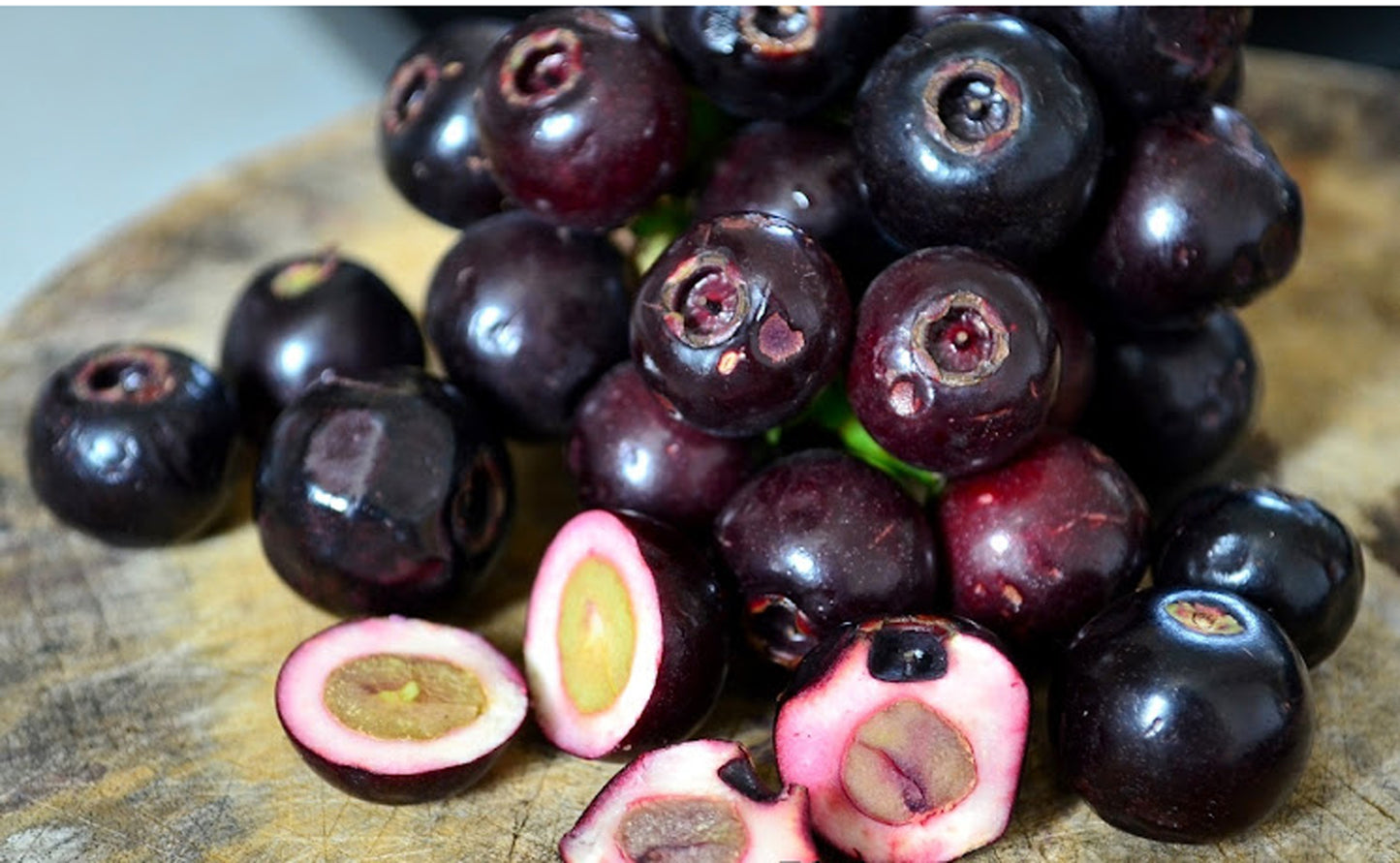Lipote: The Forgotten Purple Jewel of the Tropics
(Botanical Name: Syzygium curranii)
Also Known As: Lipote, Baligang, Jambu Keling, Ma-Ut Daeng
In the heart of Southeast Asia thrives a deeply pigmented, vitamin-rich berry that has quietly nurtured generations with its medicinal and culinary magic—the Lipote fruit. Indigenous to the Philippines and scarcely found outside select tropical gardens, Lipote is a rare member of the Syzygium genus. This evergreen fruit tree is gradually reclaiming its space in modern plant collections, not only for its beauty but for the wholesome gifts it offers to human health and lifestyle.
Local and Global Names
In the Philippines, where this fruit is native, it is commonly called Lipote or Baligang. Across Malaysia and Indonesia, it goes by the names Jambu Keling and Kepa-Kepa, while in parts of Thailand, it is locally known as Ma-Ut Daeng. Despite its regional variations, this berry holds a respected place in traditional households and folk medicine cabinets.
Botanical and Physical Description
Lipote belongs to the Myrtaceae family and is often mistaken for Java plum (Syzygium cumini) due to its appearance. However, it holds distinct characteristics:
-
The fruits are small, spherical, and appear in dense grape-like clusters.
-
Color transitions from reddish-pink to a rich, deep purple when ripe.
-
The skin is glossy and slightly astringent, enclosing a soft, moist pulp.
-
A mild fragrance lingers on the fruit, intensifying as it ripens.
-
Each berry houses one or more small, firm seeds embedded in the pulp.
The tree itself is graceful, growing up to 6 to 10 meters, with shiny green leaves and smooth bark, making it not just fruitful, but also ornamental.
Taste and Culinary Profile
The taste of Lipote is often described as a cross between a tart cherry and a blackcurrant, with a subtle wine-like aftertaste. Its sweet-and-sour profile makes it a versatile culinary addition:
-
Enjoyed fresh off the tree, particularly chilled on warm days.
-
Processed into jams, jellies, and syrups that retain its natural hue and flavor.
-
Fermented to create homemade wines and natural vinegars.
-
Used as a colorful ingredient in tarts, pies, ice creams, and native Filipino delicacies.
-
When blended into smoothies, its deep purple juice adds a nutritional punch and visual appeal.
Nutritional Composition
Lipote is not only a fruit of flavor, but of function. Its dense nutritional makeup includes:
-
Vitamin C: Strengthens the immune system and supports collagen production.
-
Vitamin A and B-complex: Promotes eye health, skin vitality, and metabolism.
-
Iron, Calcium, Phosphorus: Builds strong bones and supports blood health.
-
Dietary Fiber: Enhances digestion and gut balance.
-
Antioxidants: Protects cells from oxidative stress and slows aging processes.
Health Benefits
This fruit plays a significant role in promoting wellness, particularly in tropical communities where it’s traditionally consumed:
-
Supports cardiovascular health by regulating cholesterol and blood pressure.
-
Promotes better glucose control, making it a fruit of choice for diabetics.
-
Reduces inflammation, helping to alleviate conditions like arthritis and muscle fatigue.
-
Improves digestive rhythm due to its high fiber content.
-
Fights infections and strengthens immunity thanks to its vitamin and antioxidant content.
Cultivation, Growth & Maintenance
Lipote thrives in warm, humid environments, making it ideal for tropical and subtropical gardens:
-
Soil: Prefers well-drained, fertile loam with organic matter.
-
Sunlight: Best under full sun to partial shade.
-
Watering: Requires regular watering but does not tolerate waterlogging.
-
Fertilizer: Monthly applications of compost or organic fertilizer enhance growth.
-
Maintenance: Moderate. Pruning helps to maintain shape and fruit production.
The tree usually begins to flower within 4-5 years, with fruits developing in compact, vibrant clusters each season. It adapts well to garden corners, backyards, or even pots when space is limited.
Preservation and Storage
To enjoy Lipote fruits beyond the harvest window:
-
Refrigerate ripe fruits to retain freshness for 5–7 days.
-
Freeze pulp for use in beverages or desserts throughout the year.
-
Dry or dehydrate fruit slices for long-term medicinal or snack use.
-
The fruit also ferments well, creating naturally preserved vinegar or fruit wine.
Cultural and Traditional Significance
In the Philippines, Lipote is not just food—it is medicine, memory, and heritage. Grandmothers once used it to treat fever, cleanse the digestive system, and prepare fermented tonics believed to prolong life. Home gardens across Luzon and Visayas cherish the Lipote tree not only for its fruits, but as a living connection to traditional wisdom and rural wellness.
In modern times, the tree is celebrated at local food festivals and continues to be passed down among growers as a symbol of endurance and holistic health.
Why Lipote Deserves a Place in Your Garden
This is not just a tropical berry—it’s a conversation starter, a wellness ally, and a culinary delight. Its stunning appearance, combined with its medicinal and nutritional value, makes it a rewarding choice for plant lovers who appreciate the rare and the healthful.
At Veliyath Gardens, Lipote plants are cultivated with care, ensuring that you receive a healthy, thriving sapling ready to flourish in your garden. By growing Lipote, you not only nurture your surroundings with beauty, but enrich your life with wellness traditions passed down for generations.
Let this exotic fruit plant become a part of your health journey—add Lipote to your garden today and taste the richness of tropical heritage.




